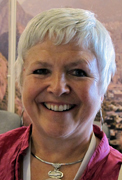Policy bite : mental health – bridging everything we do in family medicine
español
Amanda Howe, President Elect writes:
October 10th is World Mental Health Day (WMHD), so this month’s policy bite has three key messages: -
1. Family doctors are essential to effective mental health care
2. We have opportunities in every consultation to promote mental wellbeing and reduce the trauma of life events and illnesses.
3. A therapeutic doctor-patient relationship over time can enable patients to strengthen their own coping mechanisms and resilience in the face of adverse events.
This year’s WMHD theme is ‘psychological first aid’, which is a common need in our clinics. Whether precipitated by a relationship breakdown, an unexpected loss of employment, a serious diagnosis, or a bereavement, we often see patients whose lives have been turned upside down by events. To this list we can add the needs of victims of violence – refugees and asylum seekers, those who suffer at the ends of intimate partners and family members, and those who are bullied or stigmatised by others. Just as we need to be able to diagnose and manage ‘diagnoses’ such as depression, anxiety, and psychoses, we need to be able to support, advise and empower people as they face and live through personal crises.
We are fortunate that we have leaders in WONCA who champion these issues, and advise us on both needs and solutions. Our Working Party on Mental Health, and our SIGs on Family Violence and on Conflict and Catastrophe Medicine, are all alert to these issues and try to take them forward worldwide.
Thanks to the efforts of our President and others on this and previous executives, we are well linked with the World Federation for Mental Health and World Psychiatric Association, and are supportive of many of their policies on issues such as human rights, gender and mental health, and the importance of direct involvement of service users in their care. We are also focusing on the wellbeing of our own members, through projects such as the ‘resilience and life transitions’ work being done under the Working Party for Women and Family Medicine. Indeed, all our work for members should support their wellbeing and empowerment as family doctors. And we are actively contributing to the development of mental health services through our mental health consultancy work.
So there is much on which we can build for the next biennium. Nevertheless, the tide of psychological stress in the face of social adversity is a considerable burden on health professionals as well as our patients, and particularly in primary care where we are involved in close relationships with our patients over time. For this reason, the theme of WMHD2016 needs to ensure that others than health professionals understand how to help people when the going get tough. Empathic and sensible responses to distress, coupled with knowledge of basic principles of effective psychological approaches to distress, can help individuals keep some control and insight to their own responses, and those of others. Mental health and illness is something that can affect us all. We need to build our resources at a societal, professional, and systems level; first aid is only the first step in a long road to recovery and reconciliation.

Amanda Howe
President Elect
More about World Mental Health Day